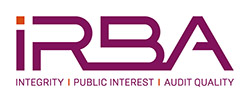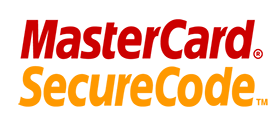IRBA inspections reveal recurring quality deficiency themes
|
Johannesburg, Tuesday, February 19, 2019 – The Independent Regulatory Board for Auditors (IRBA) today released its 2018 Public Inspections Report. The objective of the report is to promote audit quality at a broader level by highlighting significant themes arising from firm and engagement inspections performed by the IRBA. Inspections are performed in three-year inspection cycles and the year under review represents the third and last year of the Sixth Inspections Cycle. While the report shows a marginal decline in unsatisfactory findings at firm and engagement level for 2018, overall the Sixth Inspections Cycle on a three-year analysis is characterised by recurring quality deficiency themes. There are two types of inspections that are performed by the IRBA: inspections of firm-wide systems of quality control and inspections of individual audit engagement files. The objective of a firm-wide inspection is to monitor overall compliance by the firm to standards of quality control, whereas an engagement file inspection monitors compliance by selected individual auditors to applicable professional standards, codes and legislation in their performance of assurance (audit) work. The 2018 Public Inspections Report records the findings of 199 inspections performed at 111 firms (2017:101). These are divided into 11 firm-wide quality control inspections (2017: 23) and 188 audit file inspections (2017: 197). While the year-on-year comparison over the last three years of firm inspection results may show a marginal decline in the number of unsatisfactory inspections, this trend, however, does not necessarily indicate that there was an overall improvement. Says Bernard Agulhas, CEO of the IRBA: “During the year there was a decline in negative inspection results when compared to the prior two years, with 36% (4) of the 11 inspected firms and 46% (87) of the 188 inspected audit files receiving unsatisfactory outcomes.” “However, taken in an overall three-year analysis, of the 54 firm-wide quality control inspections reported on between 2016 and 2018, 50% (27) were unsatisfactory, 43% (23) were satisfactory, and 7% (4) were referred for investigation. These results are worrying as they are indicative of systemic quality control deficiencies at some firms.” Similarly, while the number of unsatisfactory findings at an audit file inspection level have declined year-on-year in 2018, when taken over the full three-year cycle the results are suggestive that the quality concerns expressed by the market are not unfounded. Says Agulhas: “Of the 622 audits inspected between 2016 and 2018, 47% (289) were satisfactory, 42% (262) were unsatisfactory and 11% (71) were referred for investigation. The high number of audits referred to the Investigations Department is unacceptable as these are based on fundamental deficiencies on the files.” “In addition, the frequency of unsatisfactory findings in general are still higher than the latest global inspections survey results released by the International Forum of Independent Audit Regulators (IFIAR); therefore, the IRBA encourages audit firms that it is necessary to focus much more on improving firm quality controls and audit quality, especially in light of the negative audit revelations of the past year.” The IRBA’s analysis of deficiencies noted during the year identified that findings are recurring. Says Imre Nagy, Director: Inspections at the IRBA: To promote audit quality improvement over the broader profession, the IRBA has implemented projects such as Audit Quality Indicators (AQIs) and transparency reporting, to share the reported audit deficiencies in user friendly format. We strongly encourage auditors to communicate with their clients and audit committees and to be transparent with their inspection results, root cause analyses and remedial action plans. Audit firms must take audit committees into their confidence, and vice versa, to facilitate robust dialogue on matters affecting audit quality.” Concludes Agulhas: “The report supports the repeated concerns the IRBA has had with regard to audit firm quality control as it relates to the risk to the public and investors in the capital markets. While the IRBA calls on all stakeholders to play their role in improving the integrity of financial reporting and audit quality, it has responded by increasing its focus on firm leadership and related issues such as tone at the top, culture of quality, ethics, firm governance and management. In our view, leadership plays a crucial role in addressing deficiencies and is ultimately responsible for driving audit quality improvement and remediation of deficiencies within the firm. “The IRBA will be taking a much stricter approach with regards to deficiencies in audit firms. Furthermore, the initiatives taken by the IRBA in tightening regulation and amending the Auditing Profession Act will ensure that harsher penalties are imposed on firm leadership and errant auditors that fail to uphold the relevant ethical, quality control and engagement performance standards.” Ends 2018 Public Inspections Report Notes to the 2018 Public Inspections Report:
The IRBA is a public protection statutory body established to protect the financial interests of the public by ensuring registered auditors and their firms deliver services of the highest quality. It upholds audit firm independence to ensure that audit quality is such that it enhances the accuracy and credibility of financial performance reporting. In this way, the IRBA has an important role to play in building the reputation of South Africa as an investment market for both local and global investors and driving economic growth for the country. The IRBA also registers suitably qualified accountants as auditors, who must adhere to the highest ethics standards, and promotes the auditing profession through the effective regulation of assurance conducted in accordance with internationally recognised standards and processes.
|





